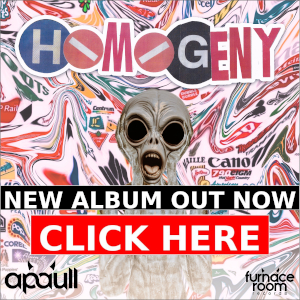“As the project gained momentum an ancillary goal emerged which was to play our part in engendering an attitude change to free music, having long been considered inferior to commercially released music.” Wassim—of The Centrifuge—replies to igloomag.com’s Five questions.
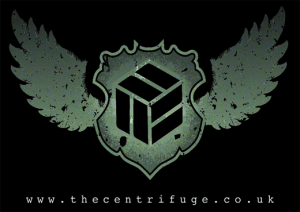 Igloo Magazine :: When did The Centrifuge start up and what was your inspiration?
Igloo Magazine :: When did The Centrifuge start up and what was your inspiration?
The Centrifuge (Wassim) :: The Centrifuge came into existence almost exactly 5 years ago (in January 2007) when NeuteK and myself (missaw) were monthly residents in the back room of the now-defunct Blueprint nightclub in Nottingham, England. We used play freaky music, hacked videogames and live coded AV to unsuspecting ravers who had mostly come for drum’n’bass and techno in the other parts of the club. We decided that giving our activities an umbrella name would give us some direction; thus The Centrifuge was born. 5 years later, after countless event productions, label releases, tours and the like, we arrive at the present day.
Our surroundings—both geographically and intellectually—have always been central to our inspiration, both in real and tangential terms. As you can probably guess from the name, both NeuteK and I have technical backgrounds (computer programming and scientific research respectively) and there’s no question that our tastes have been informed by our trajectories. Musically, the labels that formed an important part of our electronic music education such as Rephlex, Raster-Noton, Skam, Warp, Entity, Detroit Underground, Touch and Schematic provided the initial inspiration to our work. Part of the initial concept was to draw together the various fields of our interests—music, programming, AV—into one entity, and from there to feed out into the outside world.
In many ways it’s difficult to disentangle our direct sonic influences from the wider interests of sense, taste and aesthetic in the modern world. Themes such as existential philosophy, electronic culture, cosmology, neuroscience, quantum physics, consciousness exploration, love and the visceral, transcendendence and the subjectivity of human emotional experience regularly recur throughout our work.
Igloo :: Who were some of your initial artist relations and did your location help or hinder progress?
CF :: At the start it was just the two of us, then a few friends joined in and began performing at Blueprint alongside us. Some of those include Formication, Glatze and Quip, who later went on to release on our label, and Captain Chaos and Sadistician who set up our sister label Braincore. The venue eventually closed its doors and we decided to organize some free-standing events at the nearby Moog bar, where we started to collaborate with some of our better-known current roster members such as Wisp, The Gasman and Mr 76ix, plus others such as DMX Krew and Tim Exile. By this point, as many of the artists on the growing label roster were based in London, we decided to start promoting events in the capital and beyond.
In many ways it’s difficult to disentangle our direct sonic influences from the wider interests of sense, taste and aesthetic in the modern world. Themes such as existential philosophy, electronic culture, cosmology, neuroscience, quantum physics, consciousness exploration, love and the visceral, transcendendence and the subjectivity of human emotional experience regularly recur throughout our work.
Things were and still are a challenge in London, but being in a metropolis really helped us get noticed by both fans, artists and fellow underground crews and has been vital in building our networks and reputation. For much the same reason I spent 2010 living in Berlin, which provided the impetus we needed to set up an artist management & tour booking agency and to organize a string of events with artists including Bogdan Raczynski, Global Goon, NHK-Koxyen, Cylob, Wisp, Hecq and Cursor Miner. Over the past year the majority of our event activities have been in London, Berlin, Malta, Manchester and Barcelona. I suppose we have been quite nomadic over the past few years!
Igloo :: What were some of the challenges (if any) starting up a label? …and how did you envision the label to stand apart?
CF :: Our biggest challenge was that we had no idea what running a label entailed when we started! We just wanted to use the internet to put music out there. At first we really had no idea if anyone was listening, our website was really snazzy but was coded in such a way as to be impenetrable to search engines or most web browsers. You couldn’t listen to our music anywhere online for quite some time unless you downloaded a ZIP archive on trust.
It was only when we moved the site over to a WordPress platform (on which it is still based) that we started get more attention. It took a while to get ourselves noticed on forums and net-audio communities as well, as many of those didn’t really seem to cater for the fairly specialized sounds we were releasing. The label’s reputation and traffic has grown steadily over time, perhaps because the grass-roots nature of blogs and word-of-mouth “social sharing” provides a more enduring platform than what was recently described as the “increasingly rapid and meaningless hype cycle” that traditional media tends to foster, with a short spike in attention followed by an equally rapid crash back to the baseline. To date the label has had in excess of 150k EP / album downloads and several times that in track streams, we really couldn’t have dreamed of a response like that when we put together the first few releases without artwork, tagged mp3s or mastering!
I think another major challenge came from our decision to operate the label in a completely non-commercial way, giving the music away for free and instead focusing on the live arena and getting artists signed to other labels as our modus operandi. Whilst this approach imbues the whole situation with a sense of altruism and aesthetic purity, it also introduces constraints such as the potential collaborators that will work in that way. It’s been great to see quite a few notable artists—who were at first reticent of the Creative Commons model—coming round to the way we’ve used it, and I suppose that’s how we’ve managed to release the music of many highly respected artists on our label.
In terms of how we wanted to stand apart, with hindsight I can see that we were aiming to create a collection of music that explored the experimental aesthetic and that was timeless, fresh and trend-free. We were growing frustrated with seeing some of our favorite cutting-edge labels lose the purity of their direction or disappearing entirely. We just wanted to go against the grain in that respect, and to sidestep traditional wisdom on “how you run a label”. As the project gained momentum an ancillary goal emerged which was to play our part in engendering an attitude change to free music, having long been considered inferior to commercially released music. And it’s great to see forward-thinking publications like Igloo aligned with this viewpoint too!
Igloo :: What is your motivation in keeping the label moving forward?
CF :: Motivation is a strange and cruel mistress. There have been times when I was obsessed by the label and all I could do, night and day would be to work on it. Scouring the internet for fresh music, burning CDRs to sell or give away at shows and trying to help the artists along. During those early days we’d release two or three EPs / albums a month, which in retrospect was a crazy amount for a label with so little attention focused on it. At the time we really didn’t care about convention though!
Nowadays there’s a lot more work to do besides the label and we take our time over things so the release frequency is naturally lower, but this helps us keep the quality as high as possible. Co-curating releases with artists and other labels, preparing artwork, mastering and commissioning remixes just like a commercial label is helping us stay focused on maintaining an upward trajectory, but naturally this takes time.
At the end of the day the motivating principle is the same as its always been, to find music that excites us and to share it with the world.
Igloo :: Tell us more about how you (and your staff?) take the label’s “sound” to the listeners and fans. Distribution, campaigns, live shows, word of mouth etc.
At the end of the day the motivating principle is the same as its always been, to find music that excites us and to share it with the world.
CF :: In terms of “staff” we are a pretty streamlined operation, there’s myself and Ursa operating all aspects of the label. Ursa does a great job assisting with A+R and sifting through the piles of demos we get sent, and also runs our fortnightly radio show (alternate Thursday evenings 10-12pm UK time) on www.Brap.FM which is now podcasted and syndicated far and wide to reach an audience of thousands each edition. The music on the show is a wide-ranging selection of left-field electronic music with a little bit of our latest sounds mixed in for good measure, and features guest mixes from artists and DJs who fit with our general aesthetic.
Incidentally Ursa and myself will be co-hosting a special “5th Anniversary Special” on Thursday 2nd Feb at 10pm UK Time, tune in!
 Aside from that, the main channels we’ve used historically have been social networks, online communities and internet forums in the virtual realm, and through our commitment to showcasing our sounds through our pan-European live music programme. We’re planning a series of commemorative events for our 5th anniversary year throughout 2012, along with a very special compilation which is in the advanced stages of preparation and is sure to raise a few eyebrows.
Aside from that, the main channels we’ve used historically have been social networks, online communities and internet forums in the virtual realm, and through our commitment to showcasing our sounds through our pan-European live music programme. We’re planning a series of commemorative events for our 5th anniversary year throughout 2012, along with a very special compilation which is in the advanced stages of preparation and is sure to raise a few eyebrows.
Word-of-mouth has always been crucial to us, since as a non-commercial label our marketing budget has always been zero. We are regularly putting music and other content that is easily shareable online, and our website is well optimized for search engines now – so much so that we often get emails from shady intermediaries based in strange parts of the world looking to buy centrifuges urgently. Make of that what you will…
For more information about The Centrifuge, visit their website at thecentrifuge.co.uk.
[Soundcloud | Facebook | Twitter]






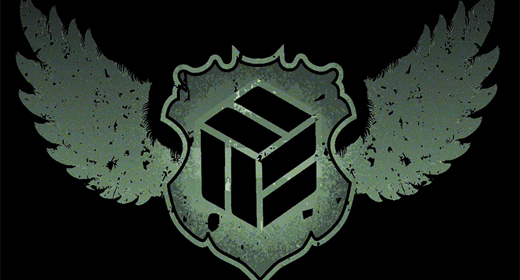




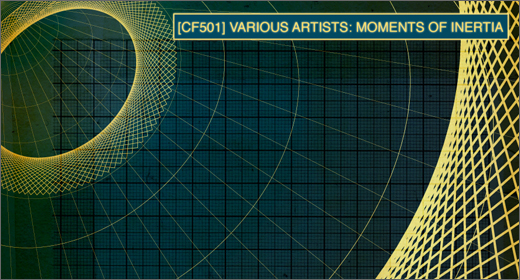
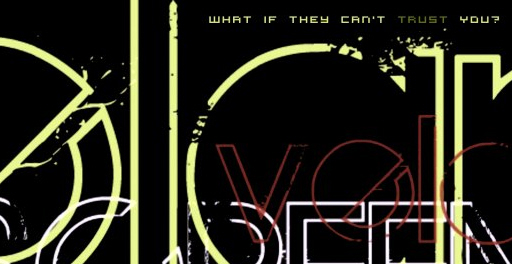
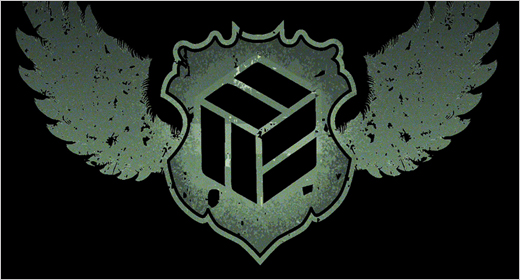


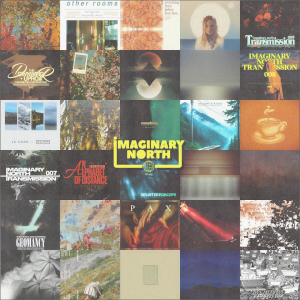







![Romanowitch :: A critical season substitute (glitch.cool) — [concise]](https://igloomag.com/wp/wp-content/uploads/2025/03/romanowitch-a-critical-season-substitute_tape_feat-75x75.jpg)

